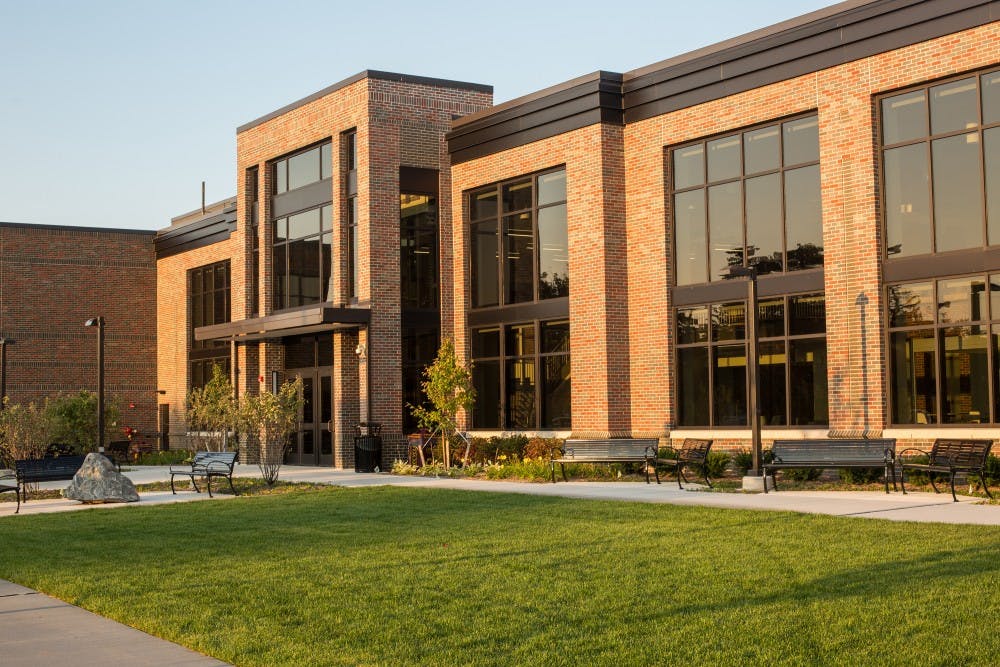College of Business enrollment up as it reacts to changes in job market
Of the seven academic colleges at Central Michigan University, the College of Business Administration is the only one to see a growth in overall undergraduate enrollment over the past five years.
According to yearly program reports released by CMU, undergraduate enrollment for the CBA rose from 1,941 students in 2012 to 2,107 in 2016.
Enrollment statistics for 2017 have not yet been determined.
Charles Crespy, dean of CBA, attributes the college's growth to the faculty's focus on being forward thinking in everything they do, with the goal of helping students be prepared for the ever-changing business world they are about to join.
“We try to be proactive and not reactive,” Crespy said. “We have a lot of faculty who are state of the art in their fields, so when we study things and anticipate there’s going to be market growth in certain areas, we create new majors.”
The College of Business Administration monitors enrollment data closely, and works to provide its students with the best opportunities possible by adjusting to the changes in the industry, Crespy said.
As of 2016, marketing and hospitality management, accounting and management were the three programs that had the highest undergraduate enrollment, each seeing growth in the five-year period between 2012 and 2016:
- Marketing and hospitality management rose from 643 to 652
- Accounting rose from 323 to 355
- Management rose from 298 to 335.
While CBA looks closely at undergraduate enrollment numbers, it's more concerned with trying to look toward the future instead of focusing on what has been popular in the past. Crespy said he and other faculty members are dedicated to designing new programs based on where they believe jobs will be in the future.
“We certainly monitor (enrollment), but more important than monitoring the numbers is trying to anticipate where jobs will be and then mobilizing our faculty to create curriculum that addresses where we think the market will be in five or 10 years.” Crespy said.
Due to these anticipated changes, CBA faculty members have begun putting programs in place to help prepare students for what’s ahead. Crespy said the CBA is currently working on creating a major in artificial intelligence in response to evidence suggesting there will likely be more jobs in artificial intelligence and data analytics in the future.
Some students have taken notice to the effort put forth by CBA staff. Freshman Ryan Baker, who is currently undecided in his major but knows he wants to go into business, voiced his approval of what CBA faculty members at Grawn Hall are doing.
“In my lectures, they have people come in from different categories like accounting, entrepreneurship, marketing and they come speak to us and it helps me decide what I want my major in business to be,” Baker said. “It helps me get to know them so I have the connections so that when I actually go do that major, I already know some of the faculty in there. It makes it easier for me to meet and connect with them.”
Enrollment in graduate programs have also seen an increase – rising from 211 graduate students in 2012 to 291 in 2016.
Bruce Marble, executive director of the Isabella Bank Institute for Entrepreneurship, said CBA has created a new master’s program called entrepreneurial transactions that started this fall. The one-year, online program aims at helping entrepreneurs become savvier legal consumers and helping them form and finance their companies.
CBA officials have noticed a new graduate program called Enterprise Resource Planning rise in popularity, due to its connectivity between several different majors. Crespy said the graduate degree for this program has grown from 50 students in 2012 to 200 in 2016, and the undergraduate major in this area has grown as well.
“Enterprise Resource Planning is a software package that has every element of the business talking to each other," Crespy said. "That’s a growing field because every business is becoming increasingly automated."




